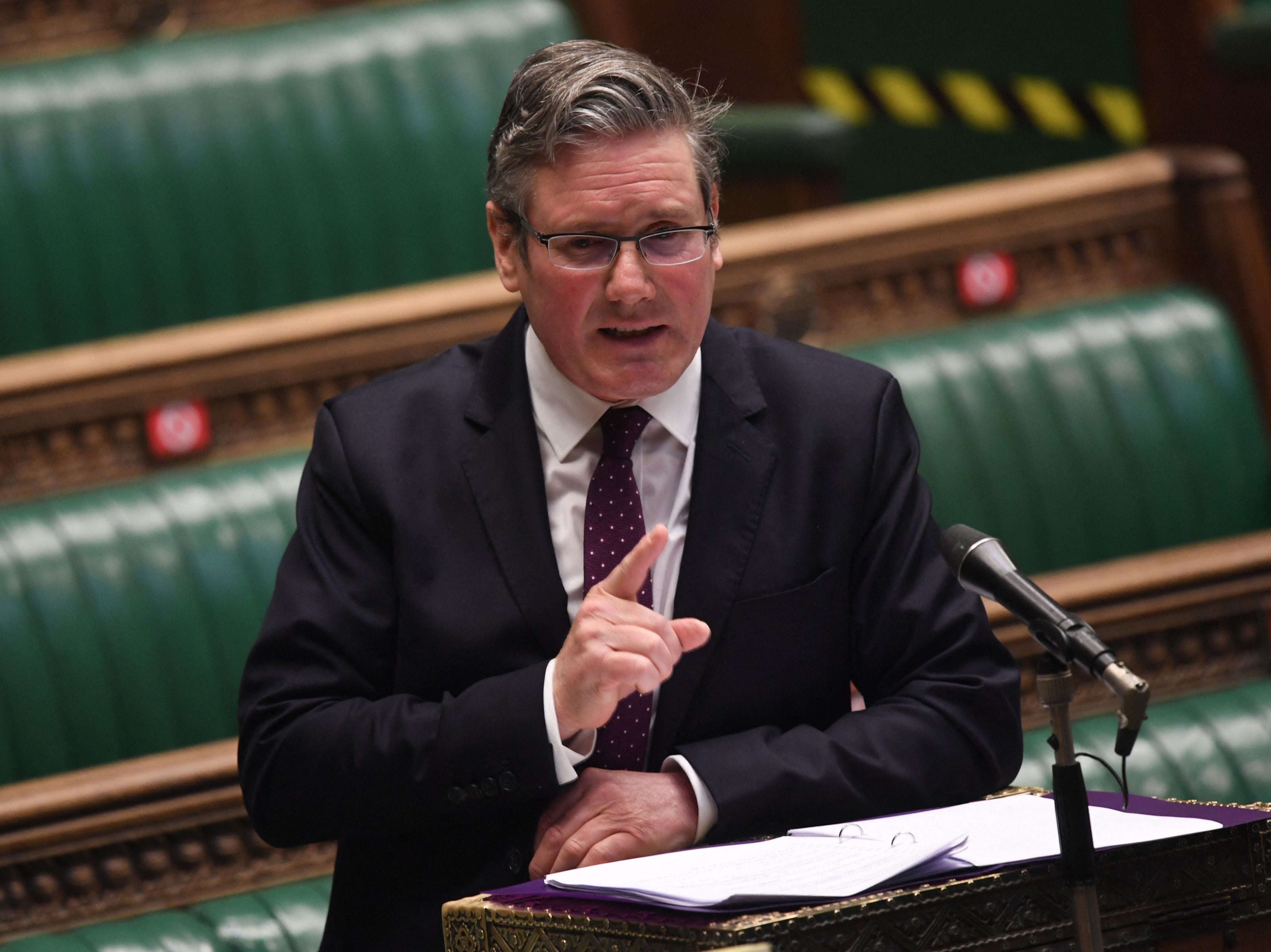How does Keir Starmer fight back after Rishi Sunak’s Labour-friendly budget?
With the spending taps well and truly on, the chancellor offered an economic plan that wouldn’t be out of place from a Labour leadership. Sean O’Grady looks at how the opposition can respond


One of the oddities of British political tradition is that it is the leader of the opposition, rather than the shadow chancellor, who responds to the Budget statement (and the deputy speaker rather than the speaker presides over proceedings). Often, this has wrongfooted the leader of the opposition for a number of reasons. First, the opposition leader may not be as thoroughly grounded in the contemporary political debate over the economy as the shadow chancellor, who lives and breathes it. Second, the chancellor may do something quite unexpected, and complicated, that renders the opposition leader’s pre-prepared speech instantly out of date and useless, and leaves them utterly exposed.
For example, a chancellor introducing a dramatic new lower tax rate of, say, 10p or 20p in the pound (as Gordon Brown and Norman Lamont did, respectively, in 1999 and 1992) left William Hague and Neil Kinnock, in their turn, having to bluster through it, unable to tell, at a glance, whether it necessarily made taxpayers better off. Third, the response is more or less immediate, with little time for improvisation. With social distancing in the Commons chamber, it wasn’t even easy for the shadow chancellor, Anneliese Dodds, to whisper an answer or two in Keir Starmer’s ear.
This year was rather different all round. The most striking departure from the past, apart from the scale of the numbers for borrowing and spending, is that the Budget was trailed so extensively. The whole convention of Budget secrecy has been silently abandoned with hardly anyone seeming to notice. In the past, Budget “leaks” have warranted the resignation of ministers, but no longer. So far from the “purdah” under which the chancellor and his colleagues used to remain silent for weeks before Budget day, they now do the media round and drop as many heavy hints as they wish. The rest is provided to the media, with suitable spin.
So this time, Starmer in his first Budget response had the great advantage of knowing exactly what the chancellor was probably going to say, and there were few surprises. He also had a little extra time because the chair of the Treasury select committee, Mel Stride, was called to speak before him, meaning that Starmer had the luxury of being able to adjust his speech accordingly, taking into account what Rishi Sunak had announced.
However, that still leaves the question of what Labour’s response should be to a Budget that could actually have been a Labour Budget. Starmer fell back on the only option left to him – the Oliver Twist tactic. Whatever the chancellor announces for spending and borrowing, Starmer is on safe ground if he cries, so to speak, in as statesmanlike a manner as he can manage: “Please, sir, I want some more.”
It came more easily to Jeremy Corbyn, of course, because he had such a long track record of Twist-like pleadings, though passionately delivered. Still, Starmer managed to demand a plan for total restructuring of the care system in the course of his speech, which, though an admirable and overdue scheme, wouldn’t fit well into a Budget statement. Starmer also has the advantage denied to so many of his predecessors of facing a Conservative government that has abandoned any pretence to fiscal conservatism or care for taxpayers’ money. No longer can the Conservatives taunt Labour about the “magic money tree” when they have planted a magnificent arboretum of their own. The flip side of that, though, is that it leaves the Labour Party with its clothes stolen.
By the same token, the Tories’ new mood of expansionism – spending, borrowing and hiking taxes up – means Labour sometimes wants to be more fiscally responsible. Hence Labour’s confusion over corporation tax, which it wanted to raise before the pandemic and before the Conservatives started to openly brief that this was an option. Labour was left saying before the budget that it still wanted to increase corporation tax – a longstanding aim – but just not yet; not until the recovery was underway. Sunak then announced that very policy, with a planned rise to 25 per cent in 2023. Wisely, Starmer backed it rather than invent yet another policy on the hoof.
As the next election approaches, the traditional stances of both main parties have been disrupted by the Johnson government’s populism and carefree abandonment of ideology. All that may be left for Labour, barring a return to all-out Corbynism, is to try to persuade the voters that Starmer and Dodds are more responsible and competent than Johnson and Sunak. That may be trickier than it sounds.

Join our commenting forum
Join thought-provoking conversations, follow other Independent readers and see their replies
Comments